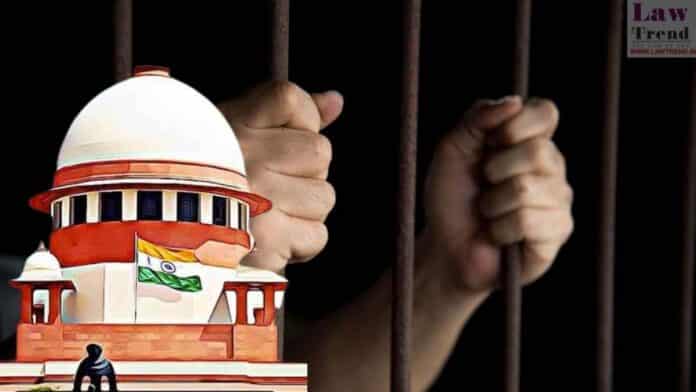As it grapples with the problem of overcrowded jails with inmates living cheek by jowl, the Supreme Court has asked the Centre and states to furnish details about the availability of medical facilities for prisoners and imparting them vocational training.
The apex court, which is hearing a matter related to alleged “inhuman conditions” prevailing in 1,382 prisons across India, also asked the Centre and the states to file affidavits giving the details about availability of adequate information technology (IT)infrastructure for conducting virtual court proceedings and visitation rights of family members of those incarcerated.
When the matter came up for hearing on Tuesday before a bench of Justices Hima Kohli and Rajesh Bindal, it noted the sixth, seventh and eight preliminary reports and the final synopsis of the reports of December last year have been submitted by the top court-appointed committee on prison reforms.
In September 2018, the top court had constituted a three-member committee headed by former apex court judge Justice (retd) Amitava Roy to look at issues involving jail reforms and make recommendations on several aspects, including overcrowding in prisons.
On Tuesday, the bench asked advocate Gaurav Agrawal, who is assisting the court as an amicus curiae (friend of court), in the matter, to share copies of the reports with the counsel for the Union of India and the state governments.
Some time is sought and granted to counsel for the parties to go through the reports and assist the court on the next date of hearing, the bench said.
“Having perused the terms of references forwarded by this court to the committee for giving its recommendations in terms of the order dated September 25, 2018, we are of the opinion that some other issues are also required to be addressed, which include the following
“Availability of medical facilities to the inmates in jail, imparting vocational training to the inmates in the jail and availability of adequate IT infrastructure in jail premises for the purposes of conducting virtual court proceedings and for visitation rights of family members,” the court said.
It said, to start with, the aforesaid aspects may be responded to by the Union of India and the state governments by filing appropriate affidavits through the Director General of Prisons of the respective states within three weeks from today, with advance copies to the amicus curiae (lawyers appointed by court to assist it in a case), who is requested to collate the entire information furnished, for the perusal of the court on the next date of hearing,” the apex court said.
It said the counsel for the parties shall assist the bench on issues related to women and children in detention, transgender prisoners, and death row convicts.
The bench has posted the matter for resumed hearing on September 26.
In its September 25, 2018 order, the apex court had said the Supreme Court committee on prison reforms would give its recommendations on several issues, including reviewing the implementation of the guidelines contained in the Model Prison Manual, 2016 by the states and Union Territories.
Also Read
It had said the committee would examine the extent of overcrowding in prisons and correctional homes and recommend remedial measures, including an examination of the functioning of under trial review committees, availability of legal aid and advice, grant of remission, parole and furlough.
The apex court had said the committee would examine violence in prisons and correctional homes and recommend measures to prevent unnatural deaths.
The panel, it said, would also assess the availability of medical facilities in prisons and correctional homes and make recommendations about these aspects.




